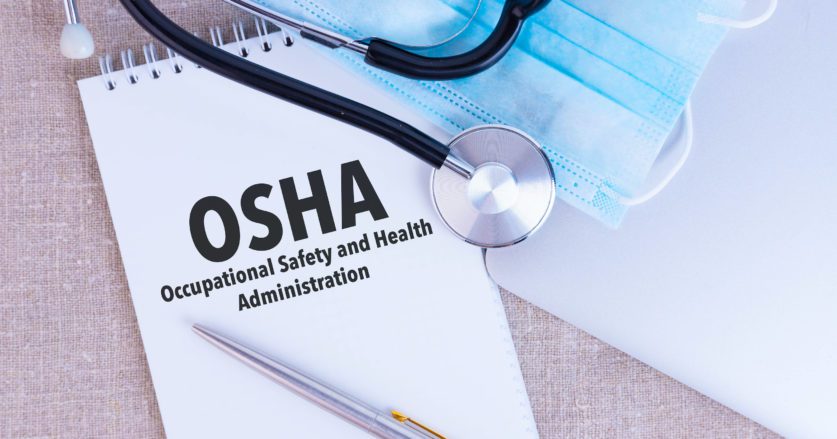Call Us Now1-800-414-2174


by Beveridge & Diamond PC
OSHA announced that it intends to continue to work expeditiously to issue a final standard that will protect healthcare workers from COVID-19 hazards, and will do so as it also considers its broader infectious disease rulemaking. However, given that OSHA anticipates a final rule cannot be completed in a timeframe approaching the one contemplated by the OSH Act, OSHA also announced that it is withdrawing the non-recordkeeping portions of the healthcare emergency temporary standard (ETS), 29 C.F.R. § 1910.50.
Potential Scope of a Permanent Standard
So where does OSHA plan to go with a permanent standard? OSHA is unlikely to require vaccination, in light of NFIB v. OSHA. That is not to say OSHA lacks authority to regulate occupation-specific risks related to COVID–19. Where the virus poses a special danger because of the particular features of an employee’s job or workplace, targeted regulations are plainly permissible. For example, OSHA could regulate researchers who work with the COVID–19 virus. So too could OSHA regulate risks associated with working in particularly crowded or cramped environments.
The Regulatory Information Service Center’s Fall 2021 Regulatory Agenda, 87 Fed. Reg. 5002, 5128 (Jan. 31, 2022) summarizes OSHA’s plan to issue an infectious diseases standard of limited scope, building upon spadework during the Obama Administration:
OSHA will propose an Infectious Diseases rulemaking to protect employees in healthcare and other high-risk environments from exposure to and transmission of persistent and new infectious diseases, ranging from ancient scourges such as tuberculosis to newer threats such as Severe Acute Respiratory Syndrome (SARS), the 2019 Novel Coronavirus (COVID–19), and other diseases.
The regulations.gov website entry provides more details about the workplaces to which OSHA is considering application of such a standard:
Health care workers and workers in related occupations, or who are exposed in other high-risk environments, are at increased risk of contracting TB, SARS, Methicillin-Resistant Staphylococcus Aureus (MRSA), COVID–19, and other infectious diseases that can be transmitted through a variety of exposure routes. OSHA is examining regulatory alternatives for control measures to protect employees from infectious disease exposures to pathogens that can cause significant disease. Workplaces where such control measures might be necessary include: Health care, emergency response, correctional facilities, homeless shelters, drug treatment programs, and other occupational settings where employees can be at increased risk of exposure to potentially infectious people. A standard could also apply to laboratories, which handle materials that may be a source of pathogens, and to pathologists, coroners’ offices, medical examiners, and mortuaries.
What Happens Next
The next step listed in the Regulatory Agenda is issuance of a proposed rule, projected for April 2022. It is likely that OSHA will carry over some of the provisions from its two COVID-19 ETSs to this proposed rule.
Rulemaking for a permanent infectious diseases standard could take years. In the meantime, employers should expect updated guidance from OSHA and an increased emphasis by OSHA on enforcement under the General Duty Clause and OSHA’s permanent standards as a means of enforcing employee protections from COVID-19.
Beveridge & Diamond’s Occupational Safety & Health practice group works alongside clients’ legal, EHS, and technical teams to help resolve critical enforcement, compliance, and regulatory issues relating to their facilities and operations. Beveridge & Diamond also maintains a COVID-19 EH&S Resource Center to help companies navigate the pandemic, protect their employees, and minimize business interruptions.
WorkSaver Employee Testing Systems 478 Corporate Dr. Houma, LA 70360
![]()